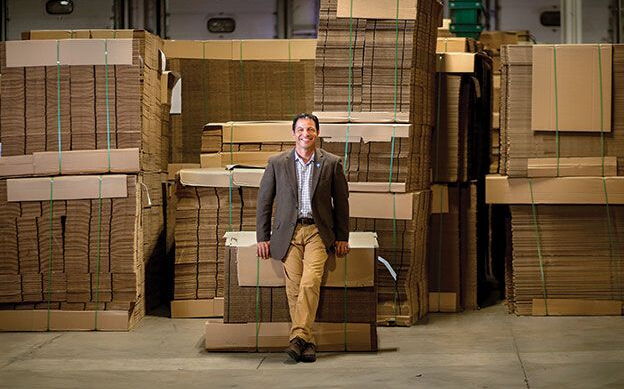Processing Your Payment
Please do not leave this page until complete. This can take a few moments.
- News
-
Editions
-
- Lists
-
Viewpoints
-
Our Events
-
Event Info
- Business Leaders of the Year Reception 2025
- Women's Leadership Forum 2025
- On the Road with Mainebiz in Bethel
- Health Care Forum 2025
- On The Road with Mainebiz in Greenville
- On The Road with Mainebiz in Waterville
- Small Business Forum 2025
- Outstanding Women in Business Reception 2025
- On The Road with Mainebiz in Bath
- 60 Ideas in 60 Minutes Portland 2025
- 40 Under 40 Awards Reception 2025
- On The Road with Mainebiz in Lewiston / Auburn
- 60 Ideas in 60 Minutes Bangor 2025
Award Honorees
- 2025 Business Leaders of the Year
- 2024 Women to Watch Honorees
- 2024 Business Leaders of the Year
- 2023 NextUp: 40 Under 40 Honorees
- 2023 Women to Watch Honorees
- 2023 Business Leaders of the Year
- 2022 NextUp: 40 Under 40 Honorees
- 2022 Women to Watch Honorees
- 2022 Business Leaders of the Year
-
-
Calendar
-
Biz Marketplace
- News
- Editions
- Lists
- Viewpoints
-
Our Events
Event Info
- View all Events
- Business Leaders of the Year Reception 2025
- Women's Leadership Forum 2025
- On the Road with Mainebiz in Bethel
- Health Care Forum 2025
- On The Road with Mainebiz in Greenville
- + More
- On The Road with Mainebiz in Waterville
- Small Business Forum 2025
- Outstanding Women in Business Reception 2025
- On The Road with Mainebiz in Bath
- 60 Ideas in 60 Minutes Portland 2025
- 40 Under 40 Awards Reception 2025
- On The Road with Mainebiz in Lewiston / Auburn
- 60 Ideas in 60 Minutes Bangor 2025
- - Less
Award Honorees
- 2025 Business Leaders of the Year
- 2024 Women to Watch Honorees
- 2024 Business Leaders of the Year
- 2023 NextUp: 40 Under 40 Honorees
- 2023 Women to Watch Honorees
- 2023 Business Leaders of the Year
- + More
- 2022 NextUp: 40 Under 40 Honorees
- 2022 Women to Watch Honorees
- 2022 Business Leaders of the Year
- Nomination Forms
- Calendar
- Biz Marketplace
Commentary: To thrive, Maine's economy needs to compete
 PHOTO / TIM GREENWAY
Derek Volk is president of Volk Packaging Corp., headquartered in Biddeford.
PHOTO / TIM GREENWAY
Derek Volk is president of Volk Packaging Corp., headquartered in Biddeford.
It seems we are always hearing about efforts to improve Maine’s economy.
We are constantly reading in publications like Mainebiz about announcements for new strategies, programs, grants, campaigns, initiatives, roadmaps, recovery plans and revitalization efforts.
Why then, does Maine continue to rank at or near the bottom of so many measures of economic health, compared to other states?
As a Maine business owner who has watched dozens of our Maine-based business customers leave or sell to out-of-state ownership, I think our state has failed to acknowledge one simple fact. Maine must compete against other states for people, jobs, talent and investment.
More to the point, Maine businesses must compete for customers, market share, workers, investment capital, and profits they can reinvest in Maine. No business, even multi-generational, family-run businesses with deep roots in Maine, can operate at a competitive disadvantage forever.
At Volk Packaging, a third-generation, family-run company in Biddeford that makes and sells corrugated boxes and offers fulfillment and 3PL services at Volk Paxit, Maine’s lack of competitiveness has cost us significantly and quite painfully.
My company has lost over $5.2 million in sales to companies that left Maine (measured at the time they left, so far more in today’s dollars).
Scapa Tape moved to Connecticut. William Athur, Cuddledown and Delorme Mapping moved much of their manufacturing to Massachusetts. Others left for midwestern states, ZF Lemforder to Michigan, Edwards Systems Technologies to North Carolina and Moss Tent to Illinois, just to name a few.
Trust me, the list is very long! Other once owned Maine businesses headed south to Tennessee, Virginia and Florida.
Business relocation is not the only way Maine loses jobs, tax revenue and community support from its local businesses.
Volk Packaging has seen at least two dozen of our Maine-owned business customers sold to companies based in other states. Barber Foods is now Tyson, based in Arkansas. Irving Tanning is now Tasman Leather based in Kentucky. Dielectric is now SPX based in North Carolina.
With these acquisitions, the impacts are mixed. Some retain operations and local sourcing, but new ownership usually results in an operations cut and elimination of jobs that become redundant with an out-of-state home office.
Finally, many of our Maine-based customers no longer exist. This includes some of our largest customers at one time, such as Statler Tissue, Manset Marine, Biddeford Textiles, Cornwall Industries, and Jordan’s Meats, to name a few. Again, the full list is extensive.
It must be acknowledged that companies move, sell or go out of business for a variety of reasons. Mergers and acquisitions can sometimes help struggling businesses. However, what I can say is that the stories of Volk Packaging’s lost customers are consistent. Namely, Maine’s high costs, high taxes and high regulatory burdens made it too hard to succeed here.
State rankings bear this out: Maine’s business environment ranks somewhere between No. 43 and No. 48, according to sources like Forbes and U.S. News. We ranked No. 43 for attracting investment capital.
Maine attracts just 79 cents of venture capital per $1,000 of gross domestic product, which is one-tenth the national rate of $7.65 per $1,000 of GDP.
Our infrastructure ranks at No. 49. Our overall tax burden is third-highest, and we have some of the highest income, property and business taxes in the nation.
Maine is among the highest for cost of living, health care costs, and energy costs. And Maine ranks among the lowest for the economic “value added per worker,” despite the fact that Maine workers are among the best and most hard-working anywhere.
Maine faces some challenges, like our climate and our remote location, which are facts of Maine life. The rest are the consequences of our policy choices.
Unless we start acknowledging the fact that our economic future begins with making Maine more competitive, we will continue to lose businesses to other states.
With those losses, Maine loses employers who care deeply about their employees and their communities. We lose jobs that support families and support our communities. We lose the rarely discussed but important ripple effect of local businesses as, according to the U.S. Department of Defense, every new manufacturing job spurs 7 to 12 new jobs in the manufacturing ecosystem. And we lose out on the taxes and many charitable donations that pay for the services for our fellow Mainers.
It’s time for a new strategy for Maine.
About the author
Derek S. Volk is CEO of Volk Packaging Corp. in Biddeford.
Mainebiz web partners
Excellent article! Maine has to get serious about reducing the tax burden on our citizens and businesses.
Well said Derek, I could not agree more.
My company just put a much needed rate increase in front of a large out of state public company and were told "these are New York rates".
It keeps getting harder to live and work in Maine.
Drew Graham, President, Ship Right Solutions, South Portland.









2 Comments